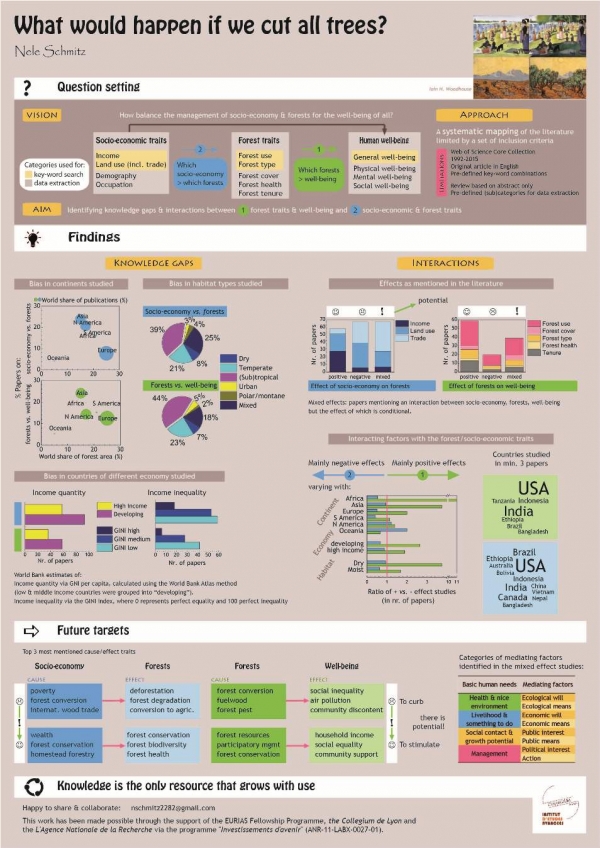New report: What would happen if we cut all trees?

by Nele Schmitz
“What would happen if we cut all trees?”. Deforestation is always presented as a big drama, while plantation actions get all cheers. We know forests are important for a whole list of things. If all trees would be cut, people‘s lives would be affected in many ways. But which forests should be kept in case we had to choose? What is the effect of the type of forest on human well‐being? Is there an effect of how the forest is used? Does it matter if the forest is big or small or how healthy the forest is? How can socio‐economy interact with these forest characteristics to optimize well‐being?
From here developed my vision: “How balance the management of socio-economy & forests for the well-being of all?” For the ten months I had available to work on this project I started with identifying the knowledge gaps and currently known interactions between defined socio-economic traits, forest traits & well-being. To this end I did a systematic mapping of the literature limited by a set of inclusion criteria. I used the Web of Science Core Collection from which I filtered only English articles, published worldwide since 1992, using a pre-defined set of key-words. The review was done on abstract only using a pre-defined set of (sub)categories for data extraction, requesting an explicit mentioning in the abstract of a relation between (i) socio-economy & forests or (ii) forests & well-being.
The main finding of the study is a serious bias of the topic in the current English language literature, indexed in Web of Science, leading to a dispersed knowledge base.
- Current research is happening haphazardly, there is no systematic increase of our knowledge.
- Research on the interactions between socio-economy, forests and well-being is biased towards moist forests in the (sub)tropical and temperate zones, studying effects of different forest uses, focusing on developing countries in Asia.
- There is a gap in our understanding of dry forests and forests in polar and mountain regions.
- Europe is surprisingly little studied relative to its forest area, which is most likely due to the language gap. We have to be aware that when concentrating on English literature we might miss a whole lot of significant information.
- Interest in the effects of forest type (on well-being and in interaction with socio-economy) remains especially meager and while forest health got a bit more attention, knowledge on this topic is nearly exclusive to North American forests.
To end on a positive note: the future looks promising. Research on forests in relation to socio-economy and well-being steadily rose during the study period and the potential to transform negative impacts of land use and income on forests into positive ones was shown to be high.

Facebook comments